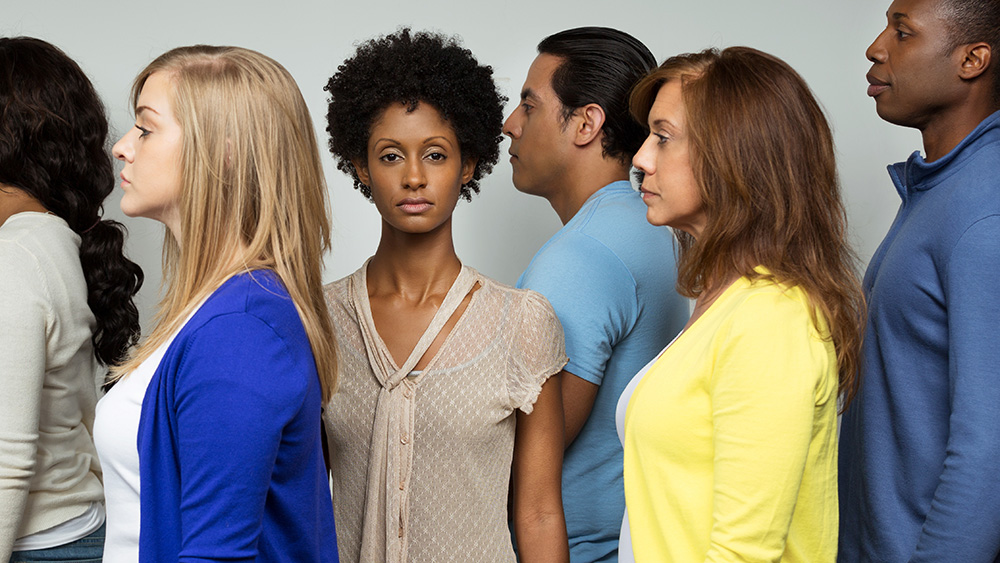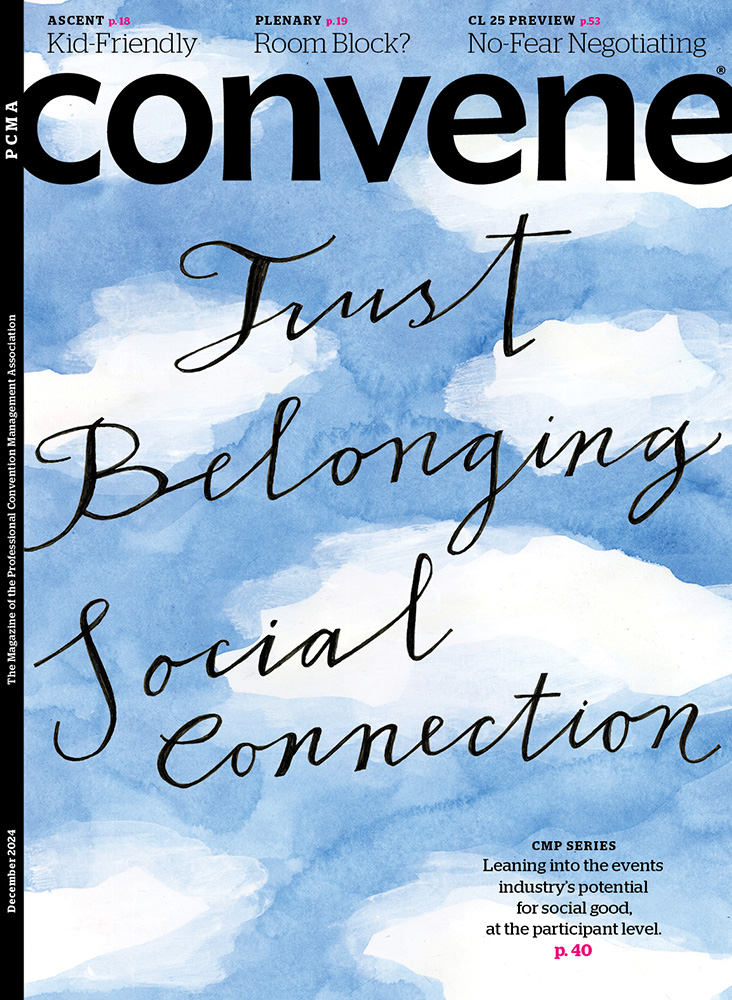
“Getting more social is the secret to making us smarter, happier, and more productive,” said UCLA professor of psychology Matthew Lieberman. His company, Resonance, created an app that can help meeting attendees starts conversations with other attendees.
If memory serves him right, the first conference UCLA professor of psychology Matthew Lieberman, Ph.D., attended was hosted by the Society of Experimental Social Psychology in the late 1990s. He learned “a really important lesson” at the conference, he told Convene, and it didn’t come from a session. When he left a presentation for a bathroom break, he saw that his academic advisor was talking with a group of colleagues in the hallway. He asked, “‘Hey, why are you guys out here instead of in there?’ They laughed and they were like, ‘Why are you in there instead of out here? This is where everything good happens at a conference.’”
Naturally, this has resonated with Lieberman, one of the founders in the field of social neuroscience. Eleven years ago, Lieberman delivered a TEDx Talk tied to his book, Social: Why Our Brains Are Wired to Connect. His message: “The same brain regions that register the distress of physical pain register the same distress of social pain. Social pain is real pain.”

Matthew Lieberman
That fact seems “like an evolutionary misstep,” he said in his talk. “Why would we be built with this vulnerability? You may think that our tendency to feel social pain is a kind of kryptonite, but our urge to connect and the pain we feel when this need is thwarted is one of the seminal achievements of our brain that motivates us to live, work, and play together. Getting more social is the secret to making us smarter, happier, and more productive.”
The world has caught on to that message. The surgeon general declared loneliness last year “as one of his big focus points,” Lieberman said, “which is amazing given that his remit is the physi- cal health of the nation. He basically connected the dots and said, ‘Oh, social health is physical health, without question.’”
What has changed in his field of social neuroscience since Lieberman wrote his book? One short answer: Technology. He founded a company, Resonance, as a mobile neuroimaging company. Rather than taking brain scans by having someone lay in an enormous MRI machine, it’s become possible to wear a cap to read brain activity, enabling him to take this equipment to workplaces and scan professionals. “We’re publishing a paper right now on the neural signature of burnout at work,” Lieberman said.
Resonance has shifted to “a model based on the idea that each of us has a distinctive way of seeing the world, a set of lenses that we tend to use,” he said. “We get this fingerprint of your lenses, then we combine this with artificial intelligence. With that, it turns out that we can be pretty darn successful at predicting who will connect if they meet up” among large groups of strangers.
Resonance’s app is used primarily by incoming first-year students “who find going to college a very daunting thing these days. They grew up in the shadow of COVID. They don’t have the same social skills” to make friends, Lieberman said. Students fill out a survey on the app, and “then we can take 10,000 people and we break them up into four-person pods. Every single pod is selected on the basis that every member of that pod should have a high probability of getting along with the other people in that pod. We set up a text chain between the four of them inside the app.”
Considering that conferences are places where adult learning takes place, Lieberman has set his sights on the events industry. “I’ve been going to conferences for 30 years,” he said, “and you go to a conference wanting to meet new people, yet you stand around and talk to the people that you’ve already known for 20 years because it’s just so hard to know who to start a conversation with. Our app tells you who to start a conversation with and it starts the conversation.”
One-third of the people in the U.S. “on any given day will report being lonely,” he said. “There’s a whole lot of other people for them to connect with, but they don’t know how to do it. Our app basically cuts through that — it gives people permission to start talking to each other. It predicts compatibility.”
While people attending events “aren’t necessarily desperately lonely,” they are seeking a conference “to be an enriching experience with new social connections,” Lieberman said. “It’s never about the talks.”
Michelle Russell is editor in chief of Convene.
Emotional Engagement
- How Events Can Foster Emotional Engagement
- At Conferences, We Trust: How Shared Experiences Break Down Cynicism
- An Event Entrepreneur’s Quest to Redefine Belonging
- 5 Ways Meetings Fuel Belonging
- Convention Centers Get Cozy With Intimate Meeting Spaces
- How to Make Belonging the Centerpiece of Your Events
Earn CMP Credit
Earn one clock hour of certification by visiting pcma.org/convene-cmp-series to answer questions about the articles in this cover story package. The Certified Meeting Professional (CMP) is a registered trademark of the Events Industry Council.

